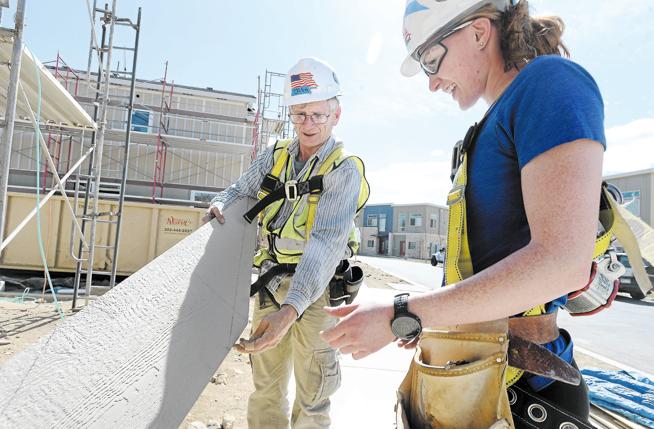BY WILL TOOR FOR THE DAILY CAMERA 04/01/2017
I am proud to live in a town that is making it clear that it will stand up to Donald Trump’s attacks on American values. In November, our mayor joined mayors across the country in a letter to Mr. Trump making it clear that cities will continue to act on climate change even if the president tries to throw up obstacles. In January, the council made it clear that Boulder will not cooperate with efforts to deport undocumented residents and break up families.
But, in order to truly be a welcoming, inclusive community, we need to examine how our local land-use and zoning rules are having unintended effects that hinder our policies of inclusion, and our efforts to combat climate change. Our housing prices are, in many ways, a wall around Boulder. A community where workers can’t afford to live, and where tens of thousands of people are forced to commute many miles a day, is not a community living up to its ideals of inclusion and climate action.
We have not yet taken meaningful action to address the housing crisis. The city has commissioned numerous studies, and convened public processes like the Housing Boulder effort in 2014 and 2015, but has backed away from many of the recommendations in the face of loud opposition to new housing.
Back in 2015, when the city stepped away from the Housing Boulder process, it was understandable that council thought that the vocal opposition meant that the residents of Boulder would not support action on housing. But now we know that this just isn’t true. In November of 2015 voters rejected ballot issues 300 and 301 by a margin of 62-38, nearly two to one. They also elected a new council majority, with three new council members who ran on explicitly pro housing platforms, (Aaron Brockett, Jan Burton and Bob Yates). Two comprehensive plan surveys have also shown deep support for building more housing in Boulder. In the most recent survey, strong majorities of respondents supported land use changes to allow more housing in industrial areas, the 28th-30th street corridor, neighborhood centers and residential neighborhoods.
The support for infill to bring more affordability to residential neighborhoods is particularly encouraging. This is how ordinary citizens can play a role in making Boulder more welcoming and inclusive, allowing older residents to age in place, and in many cases allowing existing homeowners to earn a bit of extra income to help pay their mortgages. Sixty-two percent of residents support allowing granny flats and backyard cottages, while only 30 percent oppose. Seventy-one percent support allowing duplexes as an alternative to large, expensive homes on single-family lots, with only 17 percent opposition, and 73 percent support allowing cottage courts, with only 15 percent opposed.
When Planning Board and City Council recently voted to extend the height moratorium, they pointed to this same survey as a reason to move forward quickly. The same logic should apply here — these results are a mandate for change. Imagine a world in which we got city regulations out of the way of these modest proposals. Given the number of empty nesters with extra space, I can easily imagine granny flats and duplexes allowing many older relatives, younger workers just getting started in their careers, service workers, or immigrant and refugee families being welcomed to our neighborhoods.
Council has taken some important steps on housing recently — adopting a reasonable linkage fee on new commercial development to support affordable housing, approving a cooperative housing ordinance that will allow up to 15 new housing cooperatives per year (a small but important step), and most recently appointing two new members to Planning Board, swinging it back to the middle after several years with a majority that has been quite hostile to diversifying Boulder’s housing options. Now it is time for council and the Planning Board to take bigger steps forward, both to encourage housing in commercial and industrial areas and enable neighborhood residents to play a role in solving our community’s housing challenges.
Will Toor was mayor of Boulder from 1998-2004, Boulder County commissioner from 2005-2012, and is currently on the executive committee of Better Boulder.

